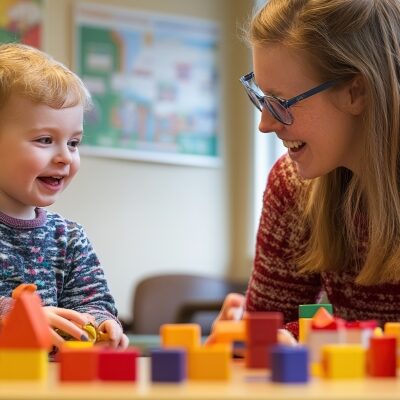Assessment Services
(Children, Teens & Adults)
When Learning Feels Harder Than It Should
For many people, learning has never felt straightforward. You (or your child) might spend hours studying, only to feel frustrated when the results don’t reflect the effort you’ve put in. Instructions may seem clear to others but confusing to you, or you might need to re-read things several times before they make sense.
Children may come home discouraged, saying they “just aren’t good at school,” while parents feel helpless watching their child lose confidence or begin to dread learning altogether. Teachers might notice strong verbal skills but inconsistent performance, or strengths in creativity paired with difficulties in reading, writing, or math.
For adults, challenges with memory, comprehension, or organization might lead to self-doubt or burnout at work. Many describe a lifelong feeling of “working harder than everyone else” just to stay afloat.
If you are from Calgary and any of these experiences sound familiar, a psychoeducational assessment can help uncover why learning feels so hard—and, more importantly, what can be done to make it easier.
What is a Psychoeducational Assessment?
A psychoeducational assessment explores how a person learns, including their cognitive strengths, processing patterns, and areas that may be causing frustration. It helps identify learning differences such as dyslexia, dysgraphia, or dyscalculia, as well as giftedness or attention-related challenges that affect academic and daily functioning.
At Still Waters Psychology, our approach is neurodiverse-affirming and strength-based. We don’t see assessments as a way to label someone, but as a way to understand their unique learning profile. By identifying both what’s getting in the way and what comes naturally, we can tailor strategies that build confidence and success—at school, at work, and in life.
What’s Included in a Psychoeducational Assessment?
Initial consultation and background interview – to gather developmental, educational, and social history.
Cognitive testing – to measure reasoning, memory, processing speed, and problem-solving abilities.
Academic achievement testing – to assess reading, writing, math, and comprehension skills.
Executive functioning and attention screening – to understand organization, focus, and working memory.
Executive functioning and attention screening – to understand organization, focus, and working memory.
Comprehensive feedback session and written report – including clear explanations of findings and personalized recommendations for learning supports, accommodations, and next steps.
Signs You or Your Child May Benefit from a Psychoeducational Assessment
A psychoeducational assessment may be helpful if you or your child:
Struggle with reading, writing, math, or spelling despite effort or tutoring
Experience inconsistent grades or need much longer to complete schoolwork
Have strong verbal skills but difficulties demonstrating knowledge on paper
Avoid homework, studying, or projects out of frustration or self-doubt
Seem to lose focus or motivation quickly when learning
Express feelings of failure, anxiety, or low confidence related to school or work performance
Are transitioning to post-secondary studies or a new job and want to understand their learning profile for success




Comprehensive ADHD Assessments
(Children, Teens & Adults)
When Life Feels Overwhelming…
For many people with ADHD, everyday life can feel like trying to keep a dozen plates spinning at once. You may have the best intentions—plans, reminders, lists—but still end up feeling scattered, behind, or burned out. Tasks that seem easy for others can feel exhausting for you. Deadlines get missed, motivation fluctuates, and no matter how hard you try, it can feel like you’re always one step behind.
For children and teens, the story often looks a little different but feels just as heavy. They might be bright, creative, and full of potential—yet struggle to stay organized, complete assignments, or follow through on responsibilities. Parents may watch their child work twice as hard to achieve the same results, or notice them losing confidence and motivation despite their efforts.
If this sounds familiar, a comprehensive ADHD assessment can help you understand what’s happening beneath the surface and begin to chart a clearer path forward.
What is a Comprehensive ADHD Assessment?
A comprehensive ADHD assessment explores how attention, executive functioning, and emotional regulation work together to influence everyday life. It looks beyond the surface of symptoms to consider behavioural, social, and emotional factors that may be impacting performance at home, school, or work.
Our goal at Still Waters Psychology is not to “diagnose and label,” but to help you understand how your brain works. We believe that every brain has its own rhythm and strengths—and that success comes from learning how to work with your brain, not against it.
An ADHD assessment highlights strengths as well as challenges, helping you see where you naturally thrive and where you might benefit from added support or structure. We empower individuals by working collaboratively, offering strategies that fit their unique learning style, energy levels, and environment.
What’s Included in an ADHD Assessment
Clinical interviews and developmental history – to understand early patterns, strengths, and challenges.
Behavioural questionnaires – completed by the client, parents, or teachers to gather observations across different settings.
Standardized cognitive and attention testing – to assess focus, processing speed, working memory, and problem-solving.
Emotional and behavioural assessments – to explore how mood, self-esteem, and stress may affect functioning.
Executive functioning and attention screening – to understand organization, focus, and working memory.
Comprehensive feedback session and written report – including a clear explanation of results, diagnostic impressions (if applicable), and personalized recommendations.
Signs You or Your Child May Benefit from an ADHD Assessment
You might consider an assessment if you or your child:
Often feel overwhelmed or have difficulty getting started on tasks
Struggle with organization, time management, or follow-through
Experience frequent forgetfulness, misplaced items, or incomplete work
Have strong emotions that feel hard to manage or seem “out of proportion” to situations
Are often described as easily distracted, restless, or impulsive
Feel frustrated, discouraged, or “not living up to potential” despite trying hard
Experience low self-confidence or stress related to performance at school, work, or home
A comprehensive ADHD assessment can bring relief, understanding, and direction. It’s about finding answers—but more importantly, it’s about rediscovering your strengths and learning new ways to thrive.




The Benefits of an Assessment
A Deeper Understanding – Gain insight into your own or your child’s unique strengths, challenges, and learning style.
Tailored Recommendations – Receive individualized strategies and treatment plans designed to fit your needs.
School & Workplace Accommodations – Access the supports necessary to thrive academically or professionally.
Ongoing Support – Learn ways to manage symptoms and challenges with confidence and compassion.
Our Psychologists can help you and your child understand their unique learning challenges and strengths.
We believe that every mind is unique. A diagnosis or assessment result does not define a person—it provides language, clarity, and direction. Our team takes a neurodiverse affirming approach, meaning we respect and value different ways of thinking, learning, and experiencing the world. With this perspective, assessments are not about “fixing” someone but about helping them uncover strategies, supports, and opportunities that allow them to flourish.
Ready to Take the Next Step?
You don’t have to keep wondering or struggling alone. The first step toward clarity is often the hardest—but it can also be the most empowering.
Book your assessment today
or
Contact us to learn more about how our team can support you and your family.
At Still Waters Psychology, we’re here to walk alongside you—helping you or your child gain understanding, confidence, and the tools to thrive.
Frequently Asked Questions
Is a psychoeducational assessment worth it?
When a student is working harder than their peers or consistently feeling overwhelmed by school, it can take a toll on their confidence and well-being. A psychoeducational assessment helps identify why certain tasks feel challenging and what supports can make learning feel more manageable. Understanding a person’s learning profile often brings relief, clarity, and a pathway toward reaching their potential. It’s an investment in building confidence and supporting long-term success.
What age should you do a psychoeducational assessment?
We offer assessments for children as young as 7 years old. There isn’t a specific “ideal” age—an assessment can be helpful whenever a child is falling behind peers, feeling frustrated with school, or showing signs of stress around learning. Because needs shift over time, reassessments are often recommended every four years.
Psychoeducational assessments can also be incredibly beneficial for post-secondary students and adults, especially when academic or workplace demands increase and old strategies no longer feel effective. Understanding your learning profile at any stage of life can open the door to the right tools, accommodations, and supports.
Can a psychoeducational assessment diagnose autism?
A psychoeducational assessment does not diagnose autism. However, if we notice characteristics that suggest autism or another neurodevelopmental difference, we will discuss this with you and recommend a specialized assessment with a clinician who has expertise in autism evaluations.
How long does a full psych evaluation take in Calgary?
A full assessment includes a history session, a review of academic records, testing sessions, scoring and interpretation, and a feedback meeting. The exact timing depends on the questions you want answered and the types of tests required. Most families receive their written report and feedback within 3–5 weeks of the initial appointment.
What does a full psychoeducational assessment include?
Every assessment begins with a history session to understand strengths, concerns, and learning experiences. From there, your clinician completes testing sessions, interprets the results, and prepares a clear report outlining learning strengths, areas of challenge, and answers to your key questions. You’ll also receive individualized recommendations and practical strategies to support learning at home, school, or work.
What are the first signs of ADHD?
Many people relate to occasional distraction or forgetfulness. ADHD becomes more noticeable when these challenges happen more often and start to interfere with day-to-day life. While hyperactivity is easy to recognize, many individuals experience quieter signs such as emotional overload, difficulty regulating feelings, anger outbursts, or feeling constantly overwhelmed. Some people also notice ongoing conflict at home, challenges in relationships, or a sense of working much harder than others just to keep up.
These experiences don’t mean someone isn’t capable—they often reflect a brain that processes the world differently. With the right understanding and support, individuals with ADHD can thrive, use their strengths effectively, and feel more confident in their daily lives.
If you’re wondering whether an assessment might be helpful for you or your child, we’re here to guide you through the process. You can book an assessment consult with our team at Still Waters Psychology to explore your questions and learn what next steps may support your goals.



